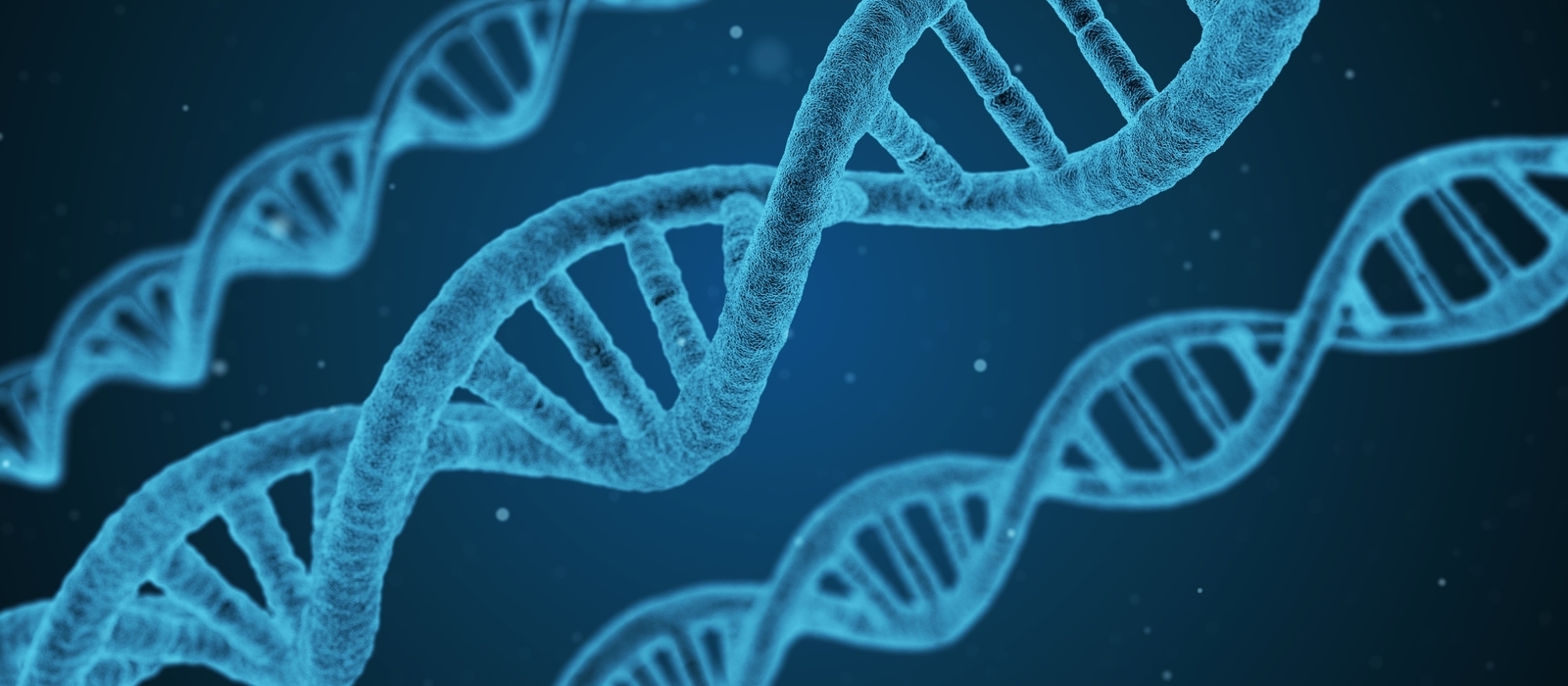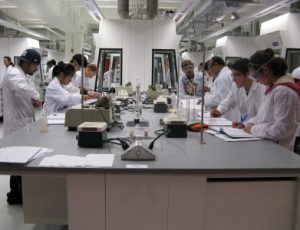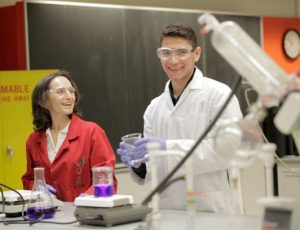Welcome to the Department of Chemistry at Carleton University!
Chair’s Message
Chemistry, often called the central science, works with electrons, molecules, metals, plastics, and beyond. Everything and anything are chemistry. Large questions in the world (“How do we solve the climate crisis?”; “How do we deal with a pandemic?”; “Why do I have to charge my mobile device?”) have fundamentally chemical solutions, and the Chemistry Department at Carleton University endeavours to help with these.
Our Department is quite diverse, with undergraduate and graduate programs in Chemistry, Food Science, Environmental Toxicology, and Nanoscience . We have a defined strategic approach to studying chemistry, participating in our community, and supporting equity, diversity, and inclusion. Our strategic plan sums this up well:
How can we share knowledge and shape the future?
How can we serve Ottawa and serve the world?
How can we strive for wellness and strive for sustainability?
We aim to be open, inclusive, transparent and fair. We want to teach and train generations of chemists with a strong and solid foundation in chemistry, who are creative and thorough in applying this knowledge to any problem that they encounter. We are research-focused, and bring practical laboratory training and cutting-edge research opportunities to our students starting in first year.
Located in Canada’s national capital, on the unceded Algonquin territory, we have easy access to government departments, national laboratories, three different Universities, and several interesting chemical industries. This “Capital Advantage” makes Co-op, summer employment, and research collaboration straight-forward and fruitful, and many of our graduates go on to careers in the national capital region.
Please check out our website, and follow up with me (or any) with any questions.
Cheers,
Seán
Discover Chemistry
Chemistry is all around us. Often called the central science, chemistry examines the processes that produce our food, clothes, medicines and hundreds of materials we use every day. Where can we see chemistry in our daily lives? Chemists have developed compounds that save lives and relieve symptoms of disease. Chemists have also made important contributions to radiation therapy, water purification and DNA fingerprinting. Chemists have also been behind many of the materials such as plastics, ceramics and nanomaterials that have benefitted society. However, many problems still remain in the world. Pollution, global warming, disease, and malnutrition are but a few. These problems will be better and more quickly solved by a society that understands and appreciates the role chemistry can play in contributing to solutions.











